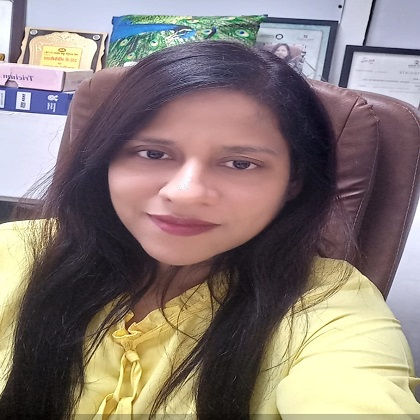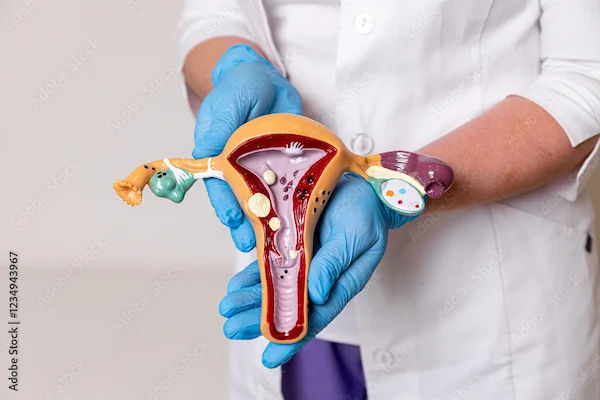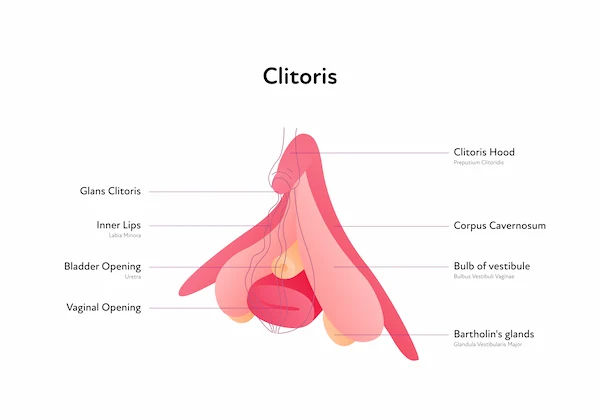How To Treat Anxiety After Hysterectomy?
Learn effective ways to treat anxiety after hysterectomy using natural remedies, lifestyle changes, and professional support. Discover how to manage emotional recovery and regain balance post-surgery.

Written by Dr.Sonia Bhatt
Last updated on 3rd Jul, 2025

Introduction
A hysterectomy, the surgical removal of the uterus, can be a life-changing procedure for many women. While it may be necessary for medical reasons like fibroids, endometriosis, or cancer, the emotional and psychological effects can sometimes be overwhelming. Many women experience anxiety after a hysterectomy, which is completely normal. If you're feeling anxious post-surgery, know that you're not alone, and there are ways to manage these feelings effectively. This article will guide you through understanding post-hysterectomy anxiety, its causes, and practical ways to cope.
Understanding Anxiety After Hysterectomy
Anxiety after a hysterectomy can stem from multiple factors:
1. Hormonal Changes: If your ovaries were also removed (oophorectomy), your body experiences a sudden drop in oestrogen, which can trigger mood swings, anxiety, and even depression.
2. Emotional Impact: The uterus is often tied to a woman’s sense of femininity and fertility. Losing it can bring feelings of grief, loss, or fear about body image and relationships.
3. Recovery Concerns: Worrying about pain, complications, or adjusting to life after surgery can contribute to anxiety.
4. Lack of Support: Feeling isolated or misunderstood by family and friends can worsen emotional distress.
Symptoms of Post-Hysterectomy Anxiety
Anxiety can manifest in different ways, including:
Constant worry or fear
Trouble sleeping
Irritability or mood swings
Racing heartbeat or panic attacks
Fatigue or difficulty concentrating
Feeling overwhelmed or tearful
If these symptoms persist for weeks and interfere with daily life, it’s important to seek help.
Consult Top Specialists for Personalised Tips
How to Manage Anxiety After Hysterectomy?
Ways to manage anxiety after hysterectomy are:
1. Give Yourself Time to Heal
Recovery isn’t just physical, it’s emotional too. Allow yourself to process your feelings without guilt. It’s okay to grieve the changes in your body.
2. Stay Connected
Talk to Loved Ones: Share your feelings with trusted friends or family.
Join Support Groups: Many women find comfort in groups where others share similar experiences. Online communities can also be helpful.
3. Practise Relaxation Techniques
Deep Breathing: Slow, deep breaths can calm your nervous system.
Meditation & Mindfulness: Apps like Headspace or Calm can guide you.
Gentle Yoga: Once your doctor approves, light stretching can reduce stress.
4. Maintain a Healthy Lifestyle
Balanced Diet: Eat nutrient-rich foods (like whole grains, lean proteins, and leafy greens) to support mood stability.
Regular Exercise: Walking or light activity boosts endorphins, which help reduce anxiety.
Limit Caffeine & Alcohol: These can worsen anxiety symptoms.
5. Hormone Replacement Therapy (HRT) (If Needed)
If your anxiety is linked to hormonal changes, discuss HRT with your doctor. It can help balance oestrogen levels and improve mood.
6. Therapy & Counseling
Cognitive Behavioural Therapy (CBT): Helps reframe negative thoughts.
Talk Therapy: A therapist can guide you through emotional healing.
7. Medication (If Necessary)
In some cases, doctors may prescribe anti-anxiety medications or antidepressants for short-term relief. Always consult a healthcare provider before starting any medication.
8. Educate Yourself
Understanding what to expect post-surgery can reduce fear. Ask your doctor questions and read reliable sources.
When to Seek Professional Help?
If anxiety:
Lasts more than a few weeks
Causes severe distress
Leads to panic attacks or depression
Affects daily functioning
Don’t hesitate to reach out to a mental health professional.
Conclusion
Anxiety after a hysterectomy is common but manageable. Be patient with yourself, seek support, and take small steps toward emotional healing. You’ve been through a major change, your feelings are valid, and help is available. If you’re struggling, consider booking a consultation with a gynaecologist or therapist through Apollo 24|7 for personalised care. Remember, healing takes time, and you don’t have to go through it alone.
Consult Top Obstetrics and Gynaecology Surgeon
Consult Top Specialists for Personalised Tips

Dr. Priyanka Surisetty
Obstetrician and Gynaecologist
8 Years • MBBS, DGO
Visakhapatnam
Apollo 24|7 Clinic - Andhra Pradesh, Visakhapatnam
(150+ Patients)

Dr Swatika Kumari
Obstetrician and Gynaecologist
19 Years • MBBS, DGO, DNB Obstetrics & Gynaecology
Nashik
Apollo 24|7 Clinic - Maharashtra, Nashik

Dr. Shailaja L
Obstetrician and Gynaecologist
16 Years • MBBS, MS
Bangalore
Apollo 24|7 Clinic - Karnataka, Bangalore

Dr. Ritika Khurana
Obstetrician and Gynaecologist
16 Years • MBBS, DGO(GYNAECOLOGY AND OBSTETRICS)
Pune
Dr Rupali and Dr Ritika, Pune

Dr. Neha Jain
Obstetrician and Gynaecologist
18 Years • MBBS , DGO (Obstetrics & Gynaecology)
New Delhi
Dr. Jain's Pathlab and Clinic, New Delhi
Consult Top Obstetrics and Gynaecology Surgeon

Dr. Priyanka Surisetty
Obstetrician and Gynaecologist
8 Years • MBBS, DGO
Visakhapatnam
Apollo 24|7 Clinic - Andhra Pradesh, Visakhapatnam
(150+ Patients)

Dr Swatika Kumari
Obstetrician and Gynaecologist
19 Years • MBBS, DGO, DNB Obstetrics & Gynaecology
Nashik
Apollo 24|7 Clinic - Maharashtra, Nashik

Dr. Shailaja L
Obstetrician and Gynaecologist
16 Years • MBBS, MS
Bangalore
Apollo 24|7 Clinic - Karnataka, Bangalore

Dr. Ritika Khurana
Obstetrician and Gynaecologist
16 Years • MBBS, DGO(GYNAECOLOGY AND OBSTETRICS)
Pune
Dr Rupali and Dr Ritika, Pune

Dr. Neha Jain
Obstetrician and Gynaecologist
18 Years • MBBS , DGO (Obstetrics & Gynaecology)
New Delhi
Dr. Jain's Pathlab and Clinic, New Delhi




